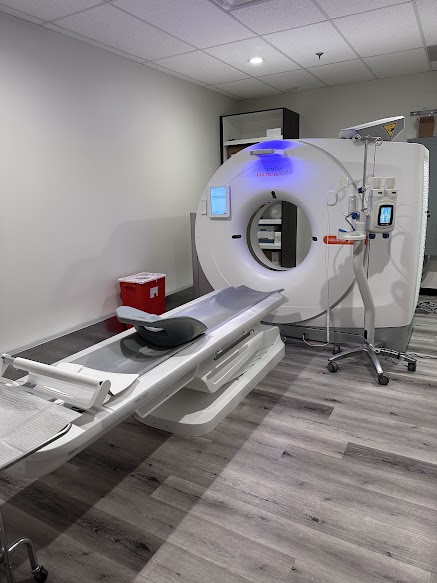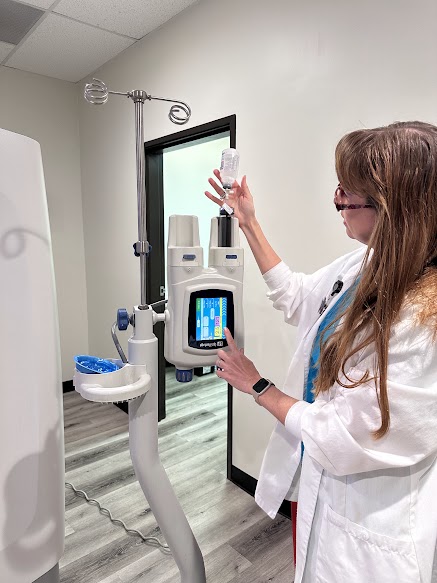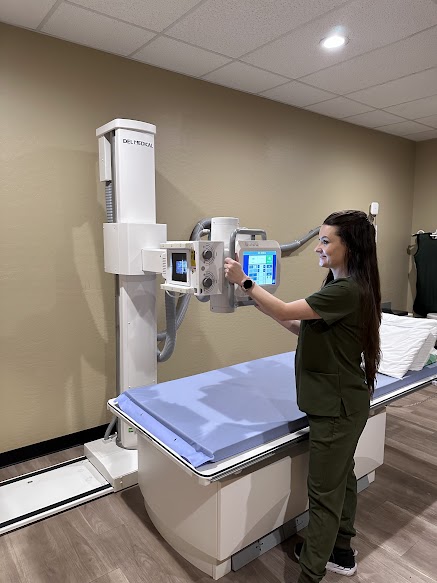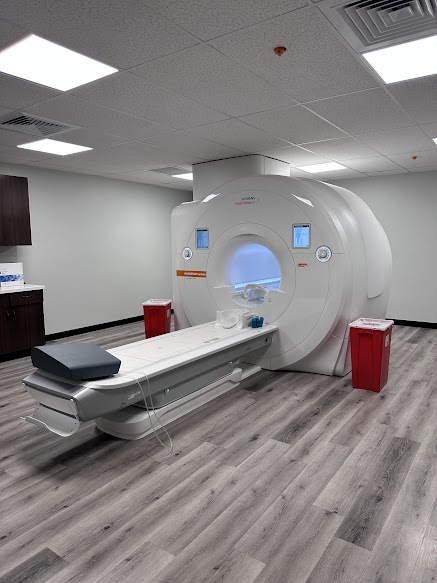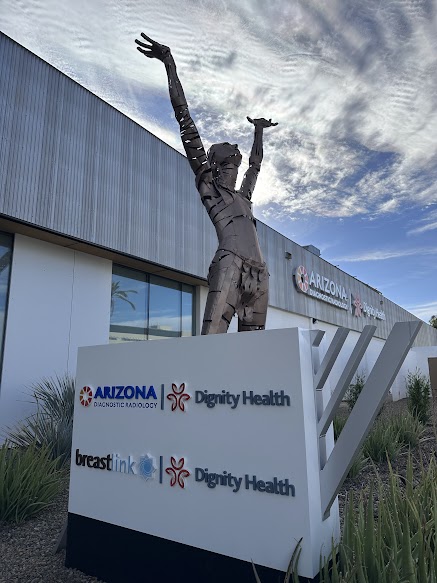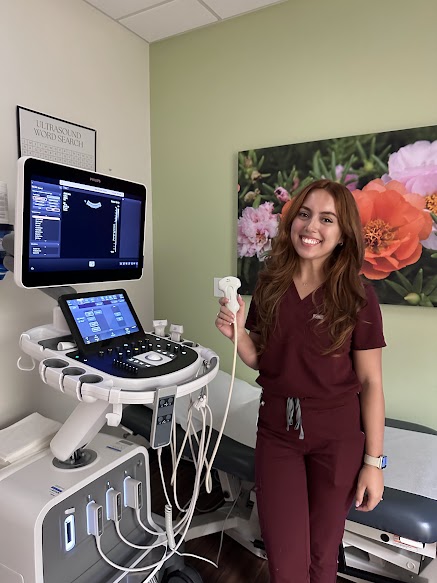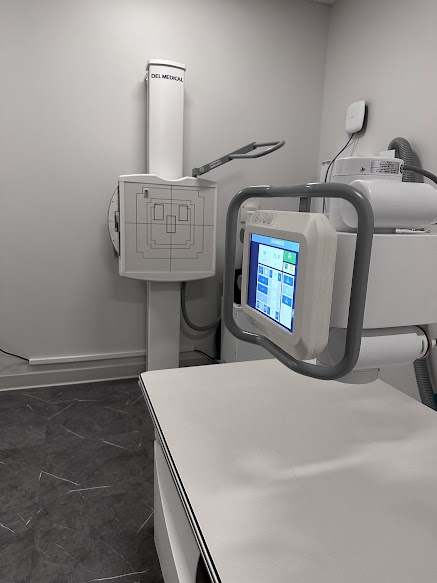
High-Risk Breast Program
At Arizona Diagnostic Radiology, we believe that knowledge is power, that’s why we’re working in collaboration with Ambry Genetics to help patients identify and understand their risk for breast and other cancers.
One out of every eight women in the United States will be diagnosed with breast cancer during her lifetime. However, when breast cancer is found in its earliest stage, there is a 99% survival rate (American Cancer Society).
Patients who discover their risk for hereditary genetic mutations for breast cancer are able to make informed decisions about their healthcare, potentially reducing the likelihood of developing cancer or detecting it at an earlier, more treatable stage.
Patients treated at AZDRG’s Breastlink centers will have an opportunity to opt into a no-cost voluntary high-risk assessment questionnaire prior to their appointment, which they can complete digitally. Using a well-studied risk assessment calculator, a patient’s lifetime risk of breast cancer will be evaluated.
Patients who receive a score of 20% or higher will be recommended for a personalized risk-assessment consultation with a breast specialist.
If assessment results meet guidelines set by the National Comprehensive Cancer Network (NCCN), patients will be offered genetic testing. The 36-gene panel screens for eight major cancers and syndromes, the majority of which have medical management guidelines recommended by NCCN.
The AZDRG/Breastlink High-Risk Program also offers a dedicated Patient Navigator who works directly with high-risk patients to answer questions, coordinate recommended follow-up – such as additional screening – and helps them navigate the process.
* While many people have a history of cancer in their family, only 5-10% of cancer is hereditary.
Questions and Answers
- Q: Why is an imaging center/radiologist offering breast cancer risk assessment and genetic testing?
A: Per recommendations from the American Cancer Society (ACS), American College of Obstetrics and Gynecology (ACOG), National Comprehensive Cancer Network (NCCN) American College of Radiology (ACR) and others, patients who are at increased risk for breast cancer may be candidates for earlier, more frequent, or additional types of breast cancer screening or may need to consider preventive surgical options. As breast health experts in the community, radiologists at our imaging centers are well positioned to assess patients' risk in order to make personalized imaging recommendations.
- Q: If my patient is deemed "high risk", how will this impact their care?
A: Identifying patients at increased risk for certain cancers based on clinical or family history risk factors can enable healthcare providers to make personalized medical management recommendations regarding earlier, more frequent or different types of cancer screening, as well as available preventive surgical options. For example, per the American College of Radiology, women with ≥20% lifetime risk for breast cancer should be referred for breast MRI.
- Q: What will be the cost to my patient for genetic testing?
A: Through the CARE program, eligible patients will receive genetic testing through Ambry Genetics. Due to Ambry's extensive contracts with commercial payers (covering 95% of insured lives), testing is affordable and accessible for the majority of patients. Four out of five patients pay $0 and for those who do pay, they pay on average less than $100. For additional questions on billing, please contact Ambry at 949.900.5500 or [email protected]
- Q: Which patients will receive genetic testing?
A: Your patient's personal and family history of cancer will be evaluated to determine if they are eligible for hereditary cancer genetic testing. Our program uses National Comprehensive Cancer Network (NCCN) genetic testing criteria, which outline various factors that may indicate a need for genetic testing, such as type of cancer, age of diagnosis, and number of family members with cancer. Any patient who meets these criteria will be offered genetic testing.
- Q: Who will manage my patient if they are identified to have a genetic risk?
A: Genetic test results and clear next steps regarding medical management recommendations will be sent to the referring physician, so that he/she is well-equipped to manage the patient's care moving forward. Additionally, genetic counseling will be made available as part of the CARE program.
- Q. How are "high risk" patients identified?
A: Your patients will be asked to complete a questionnaire about their personal and family history. This information will be used to run Tyrer-Cuzick, which will calculate your patient's lifetime risk for breast cancer.
- Q: Will genetic counseling be provided?
A: As part of the CARE program, participating patients will receive pre-test education about genes, hereditary cancer, genetic testing, implications of test results and other topics. Genetic counseling will be made available to all patients who undergo genetic testing. There is no cost to these patients for post-test genetic counseling.
- Q: What if my patient is concerned about insurance discrimination?
A: In the U.S., the Genetic Information Nondiscrimination Act (2008) prohibits discrimination by health insurance companies and employers, based on genetic information. Visit ginahelp.org to learn more.
- Q: How will genetic testing results impact my patient's care?
A: For patients who receive a positive genetic test result, recommendations for personalized medical management, including increased cancer screening and sometimes prevention options, may be available. These recommendations vary greatly because there are distinct differences in cancer risks associated with each gene. The vast majority of genes tested have associated medical management guidelines that will guide recommendations for screening and/or preventive surgery. Additionally, closely related family members can be offered testing to learn more about their lifetime risks for certain cancers, so that they can also benefit from personalized medical management.
- Q: Are there are professional society recommendations or other guidelines available related to genetic testing for hereditary cancer?
A: There are numerous professional society guidelines indicating that genetic testing for hereditary cancer is an important part of medical care. Here are a few:
- ACOG Position Statement Recommendations: A hereditary cancer risk assessment is the key to identifying patients and families who may be at increased risk of developing certain types of cancer. This assessment should be performed by an ObGYN or other ObGYN providers, and should be updated regularly.
- American Society of Breast Surgeons (ASBrS): Breast surgeons, genetic counselors, and other medical professionals knowledgeable in genetic testing can provide patient education and counseling and make recommendations to their patients regarding genetic testing and arrange testing. When the patient's test results are complex, referral to a certified genetic counselor or genetics professional may be useful. (Adapted from ASBrS Consensus Guideline, February 2019
Should you use high risk program?
If you answer "yes" to any of the following questions, the High Risk Program may be an option for you:
- Have you/your family members been diagnosed with cancer at a young age (<50 years old)?
- Have 3 or more people on the same side of your family had cancer?
- Have you/your family members been diagnosed with more than one cancer?
- Has anyone in your family been found to have a cancer gene mutation?
- Have you/your family members been diagnosed with cancers that are usually rare, like ovarian cancer or male breast cancer?
- Are you of Ashkenazi Jewish ancestry?


